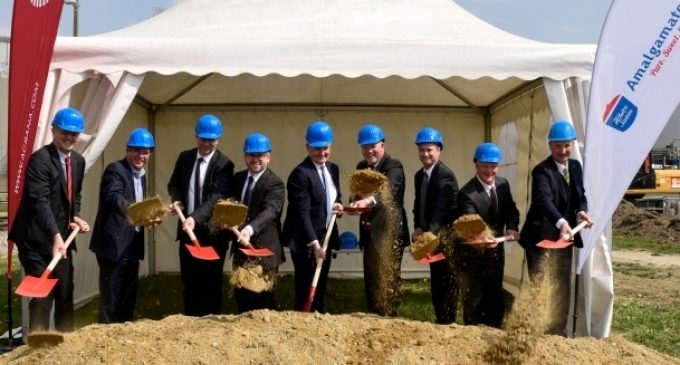Construction Starts on €40 Million Betaine Plant in Austria

The fruit, starch and sugar group AGRANA is constructing a betaine crystallisation plant at its sugar refinery in Tulln in Austria under a joint venture with Amalgamated Sugar, the second-largest sugar beet producer in the USA. The new plant, entailing the investment of around €40 million, will take a year to construct.
AGRANA has been processing the sugar beet molasses obtained during the production of sugar at its Tulln site to make liquid betaine since 2015. The new plant, with a production capacity of around 8,500 metric tons of crystalline betaine per year, will make Tulln only the third manufacturing site worldwide where premium-quality, natural crystalline betaine is produced.
The natural substance betaine, found in sugar beet molasses, is characterised by numerous positive properties and can be used in many applications. Betaine is a methyl donor and has osmoregulatory properties, aids the liver to process fats, and biologically degrades the amino acid homocysteine, which can damage blood vessels when in high concentrations.
Betaine is used not only in food supplements and sport drinks to promote muscle development, but also in livestock rearing as a component in animal feeds. Due to its osmoregulatory properties at a cellular level, betaine is also used in cosmetic products. In tensides and detergent substances (e.g. shampoos and conditioners), betaine acts to stabilise the formation of foam and also conditions and strengthens the hair.
In recent years, AGRANA has been regularly investing in energy-efficient technologies and in increasing yields at its sites in Tulln and Leopoldsdorf. For example, a new crystalline sugar silo with a storage capacity of 70,000 metric tons was commissioned at the Tulln site in 2011. In 2012, low-temperature drying facilities were installed at both sites. These facilities allow desugared and pressed sugar beet pulp to be carefully dried and subsequently processed to make sugar beet pulp pellets as animal feed.
The use of the waste heat from the upstream production processes has halved requirements of natural gas in the drying process. These modern facilities not only reduce odour and dust emissions but have already led to savings of 210,000 metric tons of CO2 equivalents.
In 2015, the Tulln site successfully commissioned its expanded molasses desugaring plant (based on chromatography) in order to improve yields and extract betaine. “The near-100% exploitation of the agricultural commodities used and reliance on low-emission technologies are key aspects of our sustainability strategy,” says Johann Marihart, CEO of AGRANA Group.
CAPTION:
Pictured at the groundbreaking ceremony were (from left): AGRANA Sugar CEO Martin Doppler; mayor of Tulln Peter Eisenschenk; AGRANA Sugar General Manager Konrad Halwax; provincial government member (Lower Austria) Ludwig Schleritzko; AGRANA Group CEO Johann Marihart; Amalgamated Sugar Vice President Joe Huff; Amalgamated Sugar President John McCreedy; member of Amalgamated Sugar Business Development Committee Mike Garner; and district governor of Tulln Andreas Riemer.

































